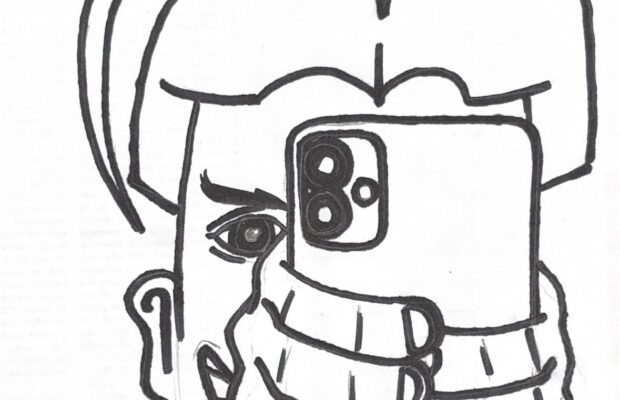Social media ruins random acts of kindness

I am sure everyone loves a random act of kindness, but unfortunately, the rise of social media has led to the degradation of genuine ones. These unexpected actions from another person usually provide a spark of human connection and joy in times of need. These deeds are not a new occurrence, and the rise of social media produced the introduction and subsequent influx of selfless acts on social media.
It is not a surprise that with the rise of social media, attempts of generosity have made their way to the online world and have been a phenomenon on TikTok and YouTube in the past decade. While this may seem like a great way to spread compassion, the rise of viewer interest in gratuitous acts has caused the often horrendous backfiring of them.
The most recent trend that supposedly exemplifies random acts of kindness is the “she deserved the purse” trend. This trend started when several people began to post about mothers having to leave behind items they wanted for themselves so that they could afford supplies they needed for their babies. Recent viral videos of purses and makeup left in diaper or baby formula aisles exemplified this. People then began purposefully hiding money in baby formula or diaper boxes to assist women who did not have enough money to buy things for themselves, along with necessary items for their babies. While at its core, this trend is heartwarming and helped many mothers, it quickly turned to those hoping to pocket an extra 20 dollars ravaging the boxes. This brings about the dystopian backfiring of empathetic efforts on the internet, and how often people will try to take advantage of someone else’s goodwill.
Not only can random acts of kindness backfire, but they can also be completely fabricated for views. Many people have posted TikToks telling stories of how they watched YouTubers create and film completely fake supposedly altruistic videos, casting their friends to be ‘strangers’ they randomly gift money to, only to take it right back and post the video as if it was real. Just as or even more immorally, influencers can exploit those who they are being kind to for views. I have seen so many videos in which an influencer records themselves giving money to or buying something for a homeless person, with many comments under the video discussing the exploitation of the less fortunate in order for influencers to get views.
Random acts of kindness should be able to stay random, and should not have to be posted on the internet to brag about how giving and kind you are. It takes the attention away from the act and points it towards the person committing it. Kindness in nature does not stem from a place of self-absorption.



